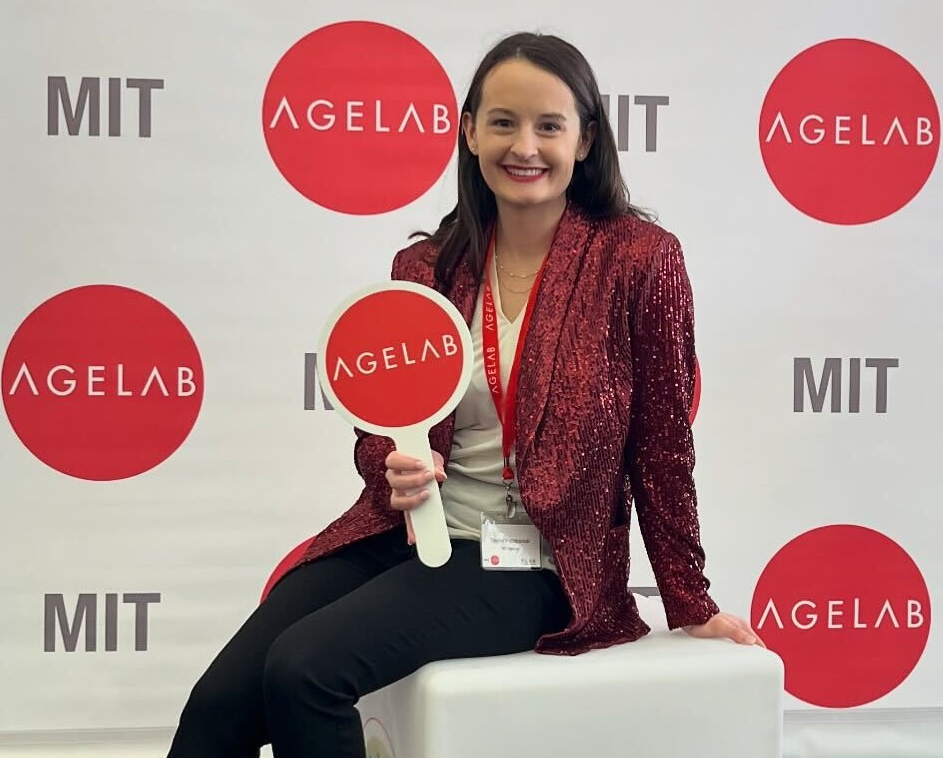Anjali Reddy: My Summer at the AgeLab
Nearly 3 in 5 Americans reported experiencing this in 2019. It is as harmful as smoking 15 cigarettes every day. It can lead to cognitive decline and dementia in older adults and genetic mutations and inflammatory or immune disorders in younger adults. This was the impact of loneliness before the pandemic.
In order to ‘do something’ about loneliness, we first have to understand what it is. Humans thrive as social animals. Social isolation presents in a person experiencing few interactions. Loneliness is not exclusive to being in company— someone who is surrounded by people can feel lonely. According to the American Psychological Association, loneliness is defined as the “affective and cognitive discomfort or uneasiness from being or perceiving oneself to be alone or otherwise solitary.”
Physical isolation, which occurs when someone is distanced from other people physically, can contribute to perceiving social isolation, or loneliness. During the COVID-19 pandemic, complying with safer, stay-at-home recommendations caused an increase in physical isolation, thus contributing to a dramatic increase in loneliness.
At the beginning of the pandemic, my mother, a primary care physician, noticed more of her patients reporting they were experiencing loneliness.
This led my sister, Tia, and me to further explore the topic of loneliness to find ways to help people cope with it. In the spring of 2020, we created SMILES & Breathe, an acronym of tips and a compilation of resources, with the intention of combating loneliness and encouraging well-being during and beyond the pandemic. Through receiving some guidance from our mother, reading the research studies, and engaging in the revision process with the help of feedback from many kind people, including the MIT AgeLab, we created pamphlets tailored to older and younger people to help cope with loneliness. As of the time of writing, we have distributed 13 versions of the handouts and created Instagram, Facebook and Twitter accounts and a website for our outreach.
When SMILES & Breathe was in its beginning stages, my sister and I learned about OMEGA, the MIT AgeLab’s program for high school students. In October of 2020, my sister and I attended the annual OMEGA Summit and became intrigued by the content OMEGA had shared with us about starting and supporting intergenerational programs. After the Summit, we began attending monthly OMEGA Chat Hours— a virtual meeting space for students interested in the topic(s) of intergenerational programming and careers in aging to connect, share resources, and brainstorm new ideas together. Attending the OMEGA Summit in October and the OMEGA Chat Hours have continued to inspire us as we expand our idea of SMILES & Breathe from its originally prescriptive nature to a more suggestive nature.
This summer, I interned at the MIT AgeLab. I co-coordinated OMEGA Chat Hours, learned qualitative coding, and became exposed to the many projects of the MIT AgeLab. One project I found inspiring in particular were the Lifestyle Leaders, a research panel of volunteers aged 85+ who are eager to share their decades of knowledge and wisdom in the pursuit of social science research. Currently, Tia and I are considering ways we can increase intergenerational interactions through SMILES & Breathe. One such way, inspired by the Lifestyle Leaders, is through sharing wisdom. Through years of simply existing and experiencing life, older adults have amassed more wisdom and knowledge relative to younger people. In the future of SMILES & Breathe, we are hoping to provide a platform for older adults to share their wisdom with others, particularly those from younger generations, through offering their own courses on topics they are passionate about. The topics of these courses could range from quantum mechanics to sewing. Likewise, we hope we can encourage mutually-beneficial exchanges and provide opportunities for high school-aged students to share the knowledge and skills they are passionate about.
We believe the generations have much knowledge to share with each other but also much wisdom to learn. While SMILES & Breathe may not solve all of the pressing issues facing the generations today, we hope it helps all of us to take a small step in the right direction in bringing older and younger people together. To learn more about SMILES & Breathe, visit our website: smilesandbreathe.org.
Anjali Reddy is a junior at the Buckingham Browne & Nichols School in Cambridge, Massachusetts. Over the course of the pandemic, Anjali has attended OMEGA events, and this summer, she interned at the MIT AgeLab. Anjali hopes that with improved human communication, connection, and sharing wisdom across generations, the loneliness epidemic can be resolved.
